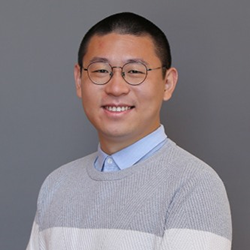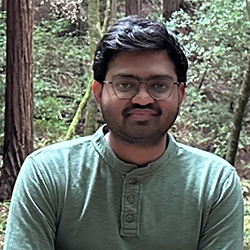Career Outcomes
Brown University DECES master's program graduates are highly competitive in academic and industry markets. Outcomes that our recent graduates achieved:
- Acceptance into PhD Program (i.e., MIT, Yale, Brown University): 60% of Graduates
- Acceptance into National Lab or Industry Positions (e.g., Spatial Genomics, Hellenic Army Center, AI and Data Science Fellow): 40% of Graduates
Source: LinkedIn and Alumni Survey
Testimonials
Kento Abeywardane
 Background
Background
- Chemical Engineering ScB
- Selected DECES to build skills/confidence in Computational Engineering
- DECES outcome to to obtain Industry position (e.g., pharmaceutical) or acceptance into PhD program
DECES Experience
- Summer internship in industry position
- Completed Thesis
- Focus on completing computational engineering courses
Outcomes
- Multiple industry and PhD offers
- Selected MIT PhD program
Ke Ma
 Background
Background
- Utilized DECES as a transitional masters to build skills/confidence in Computational Engineering
- Selected DECES due to world renowned faculty (Yuri Bazilev, George Karniadakis) and that the small program builds strong relationships with faculty and peers
DECES Experience
- Computational engineering courses built strong skills that are used in his solid mechanics PhD
Outcomes
- Brown University PhD (Solid Mechanics)
- Pursue tenured professor track or industry position
Niko Bhatia
 Background
Background
- D1 Athlete (Water Polo)
- Undergraduate Engineering degree
- Did not have time to focus on computer science (software, computational) since engineering is so rigorous and time consuming
DECES Experience
- Interdisciplinary approach is emphasized by the founding professors
- Built strong software and computational skills through project driven classes
- Professors can provide deep insights into relevant research topics
- Excellent breadth and depth of courses
- Loved living in downtown Providence
Outcomes
- Industry valued the Master’s degree
- Selected interdisciplinary engineering/software position at Spatial Genomics
- One of the few people who can solve problems with an interdisciplinary (e.g., engineering, software) approach engineering
Nikhil Kadivar
 Background
Background
- Bachelor of Technology in Mechanical Engineering from Indian Institute of Technology
- Research Engineer at Bosch India for two years
DECES Experience
- Strong desire to move away from industry to a PhD program. Confirmed this desire through the courses, conducting research with a professor, completing his thesis
- Computational engineering courses built strong skills that are used in his solid mechanics PhD
- Appreciated the interdisciplinary nature of the program
- Could take courses in data science, applied math, engineering, science (e.g., biology), computer science
- Enjoyed the “luxury to choose any course”
- Worked closely with peers and professors
- Developed strong presentation skills in his courses and defended his thesis. Received excellent feedback/support from peers and professors.
Outcomes
- PhD student working with Prof. George Karniadakis at Brown University.
- Research interest on computational modeling and simulation using numerical methods and scientific machine learning for cardiovascular biomechanics.